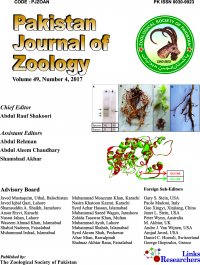Modifying the Design of Pond Production Systems can Improve the Health and Welfare of Farmed Nile Tilapia, Oreochromis niloticus
Modifying the Design of Pond Production Systems can Improve the Health and Welfare of Farmed Nile Tilapia, Oreochromis niloticus
Wasseem Emam1, Mohamed E. Bakr2*, Marwa F. Abdel-Kader3, Mohamed M. Abdel-Rahim4, Ashraf I.G. Elhetawy4 and Radi A. Mohamed1
ABSTRACT
Infected fish have been known to recover from mild illness when they are able to locate to warmer water. This study aimed to replicate this ‘behavioural fever’ effect in an aquaculture setting by artificially heating a section of a fish pond (thereby introducing a thermal gradient) and effectively modifying pond design. This was achieved through the construction of a ‘greenhouse’ type structure above a section of the pond. Over the length of the production cycle at three typical Nile tilapia (Oreochromis niloticus) farms, the study collected data on water quality and fish growth and at the end of the cycle, blood samples were taken and total production was recorded. At each farm, fish were divided into two identical ponds, one with a greenhouse covering 3% of the pond surface area and one without. Results showed that greenhouse was effective in warming the surface of the water immediately below it. Oxygen levels were also higher under the greenhouse than outside of it and higher than in the control pond. Fish reared in the greenhouse ponds tended to be larger than the control ponds and had improved physiological and immune status (i.e., better liver and kidney function, higher antioxidant activity and lysozyme count; p < 0.05). The results of this study suggest that low-cost interventions that introduce thermal gradients in aquaculture systems may hold promise for improving health and welfare status of farmed fish in developing countries.
To share on other social networks, click on any share button. What are these?









